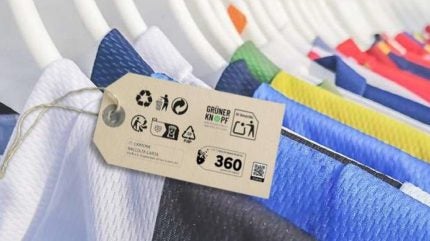
The European Commision’s strategy is aimed at revitalising the Single Market given the European market boasts a GDP of €18tn ($20.58tn) and stands as the world’s second-largest economy (nearly 18% of the global economy).
Encompassing 30 states, the European Market serves 450m consumers and includes 26m businesses, providing expansive access to an array of products, services, and investment opportunities.

Discover B2B Marketing That Performs
Combine business intelligence and editorial excellence to reach engaged professionals across 36 leading media platforms.
The new Single Market Strategy responds to the European Council’s request in April 2024 for the commission to formulate a comprehensive single market strategy by June 2025.
The comprehensive plan includes over 50 proposals designed to facilitate business operations within the Single Market by focusing on the elimination of trade barriers, fostering job creation, and driving economic growth.
The strategy emphasises on priorities such as the removal of barriers to trade, injecting vitality into Europe’s service sector, bolstering the development and expansion of small and medium-sized enterprises (SMEs), simplifying current regulations, mainstreaming digitalisation, and enhancing collective governance and ownership of the Single Market.
The sporting goods industry, represented by FESI, has expressed its support for the identification and planned removal of fragmented labelling requirements and Extended Producer Responsibility (EPR) schemes, which are part of the “Terrible Ten” barriers addressed in the new Single Market Strategy.

US Tariffs are shifting - will you react or anticipate?
Don’t let policy changes catch you off guard. Stay proactive with real-time data and expert analysis.
By GlobalDataThese issues have historically presented substantial hurdles for both large brands and SMEs, leading to administrative burdens, waste generation, and hindrances in adopting sustainable practices across national borders.
FESI secretary general Jérôme Pero said: “The recognition of packaging, labelling and EPR fragmentation as major market barriers is a direct reflection of the concerns our industry has raised for years. Today’s strategy is a step in the right direction – we now want to see those words turned into action.”
The implementation of these changes is anticipated to provide significant relief for businesses, particularly SMEs that have been grappling with varying compliance requirements across different countries.
Despite this positive outlook, FESI expressed concern regarding recent actions by the EC which seem contradictory to the strategy’s objectives. This concern stems from the commission’s approval of France’s Ecoscore system shortly before announcing the new strategy, a move that could potentially lead to further regulatory fragmentation.
“We welcome the strategy’s ambitions, but coherence will be key. Approving national measures like Ecoscore while committing to harmonisation raises questions. We urge the commission to ensure its own actions do not undermine the goals it has set today,” Pero stated.
FESI has pledged its support during the implementation phase of the proposed strategy and is keen on collaborating with both the commission and member states to achieve swift and enforceable results.
In addition, the sporting goods industry in Europe, primarily composed of SMEs, expressed its willingness to contribute actively towards creating a more competitive, sustainable, and fully integrated Single Market.
FESI represents approximately 1,800 manufacturers with 70 to 75% of its membership consisting of SMEs.
In April this year, the federation welcomed the European Parliament’s approval of the revised Ecodesign for Sustainable Product Regulation (ESPR), but raised concerns about plans to ban the destruction of unsold goods, particularly in relation to goods that infringe intellectual property rights.





